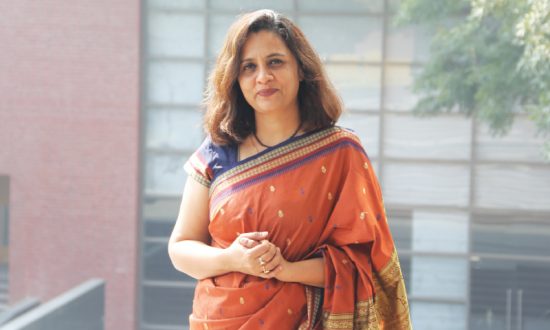As a leader in academia, you are responsible not just for your growth but also for your institution, faculty and students. At Amity University Gurugram, Dr Ila Gupta, Director of the Amity School of Architecture and Planning, strives to achieve all-round growth with hard work, objectivity, and honesty. Her fascinating journey with architecture began at VRCE Nagpur, where the rigorous education and excellent faculty set her on the path that would define her future. She further pursued her passion by studying Urban and Rural Planning at IIT Roorkee and later completed her PhD in Disaster Management from the same institution. These hallowed institutions not only had world class infrastructure but some truly inspiring faculty. Dr. Ila feels fortunate to be taught and mentored by some very inspiring teachers who helped her become the person she is today. Today, humility, perseverance and inclusiveness are her mantras for a successful leadership.
In her long and illustrious career, Dr Ila has held several roles in both industry and academia. Her first brush with leadership came during her tenure at MBS School of Planning and Architecture, New Delhi which she always values as a great learning experience. Now, as Director of School of Architecture and Planning at Amity University Gurugram, she strives to touch the lives of her students and fellow academicians to usher them in a better tomorrow. Amity University Gurugram fosters research and innovation and is known for environment sensitivity. “Our beautiful campus is India’s first and Asia’s second green campus,” she informs. “The LEED platinum-rated green building inspires architecture students to be even more responsible for the environment.” Dr. Ila spearheads several initiatives focused on environmental sustainability. Currently, she is also coordinating the activities of Amity Mega Center for Natural and Manmade Calamities, which is a critical research cluster of Amity university.

As an academician in a leadership role, she has to continually adapt to changing situations and stay updated with the latest education and architectural trends. She believes that, in the era of technological revolution, one must embrace changes to remain relevant. Therefore, Dr Ila believes that academicians need to act as facilitators to stimulate an appetite for learning in students and constantly lead by example. Thus, when the COVID-19 pandemic struck the world in 2020, she proved her ability to adapt to fast-changing circumstances. She says “Architecture education involves extensive hands-on and experiential learning, which traditionally calls for continuous interaction amongst students and faculty. During the pandemic, the faculty took a generational leap with technological know-how to provide effective virtual training for aspiring architects by using the technical infrastructure and support provided by Amity University”. Dr Ila led her team to ensure that their students continued receiving the best possible education, even in the face of a global pandemic. Moreover, the group connected with lots of industry and academic leaders and also eminent personalities like His Holiness the Dalai Lama, Shri Kailash Satyarthi, and Prof. Muhammad Yunus, who inspired students and academicians alike.
As a lady in a position of power, Dr Ila takes an active stance in spearheading the change she wants to see over time. Gender bias is deep-rooted in the country’s consciousness, with a further disparity in the empowerment of Indian women in cities, towns, and villages. While we are now in 2021, many women still do not confidently take their own personal and financial decisions. With these challenges, the lack of women in leadership roles in the country is a significant cause for concern, though not wholly surprising. She feels thankful to her parents for raising her in gender neutral environment and imbibing the values of justice, resilience and discipline right from the beginning. As a means to the end, she believes in instilling the same in her students by incorporating gender inclusiveness with sensitivity and subtlety.

Dr Ila believes that the educational sector has been more welcoming to women, making it a potential space to change our society. While educational institutes are often gender-neutral, all students need to be prepared to face the challenges of erstwhile male-dominated spaces. It means being bold to lead workforces steadily for women, while for men, the process involves cultivating sensibility to accept women as leaders. As she guides and mentors several students, she senses that many women tend to take a back seat in their careers due to their tendency to sacrifice themselves and prioritize families. She advises her students to seek equality at home and in the workplace and take on equal responsibility to give their best to both spaces. In her personal life also she appreciates the mutual unconditional support that exists in her family. “We need to redefine historically accepted domains, the first step to which is setting clear life goals and communicating them to our loved ones. When faced with twists and turns, pause, reenergize, reassess and give your best” she suggests. “Hard work, time management, and work-life balance is the mantra to a successful career.”




